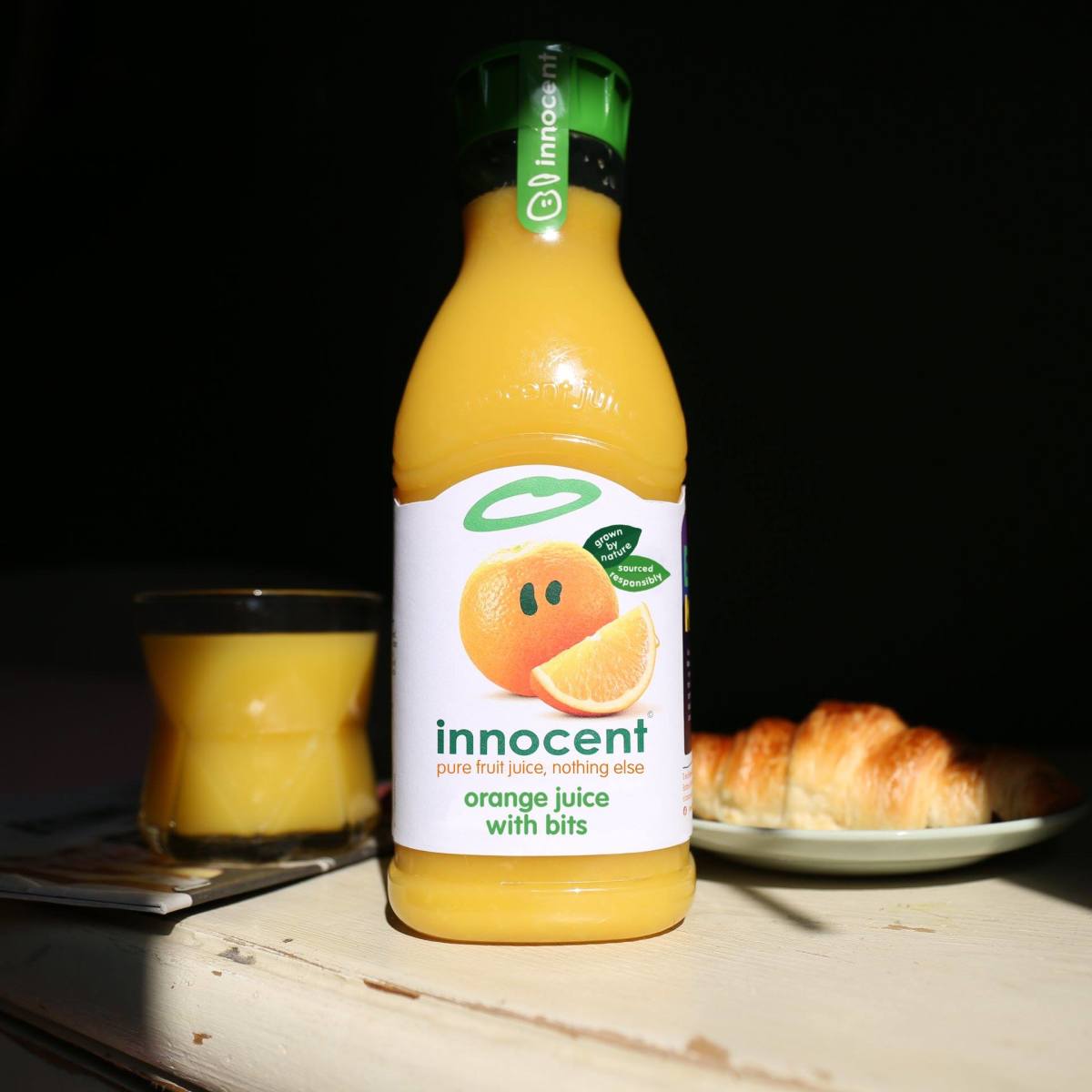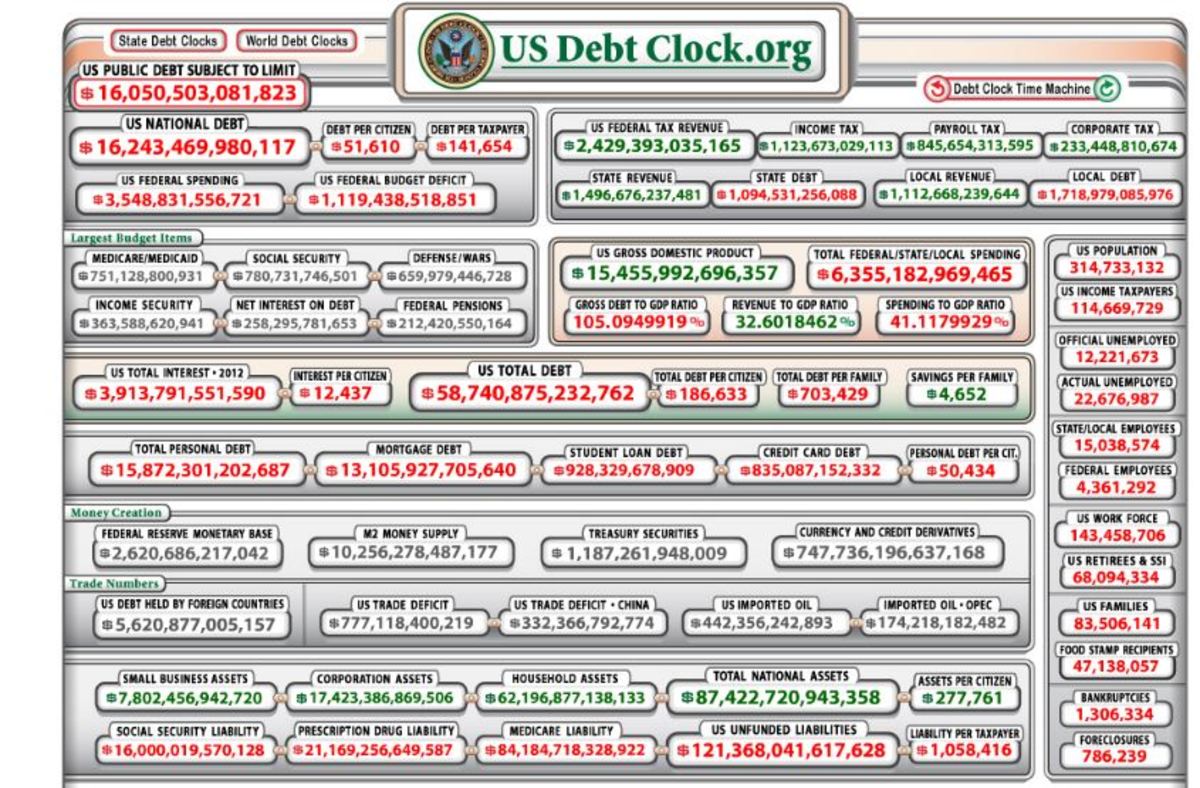Ethical Consuming: What’s YOUR Thing?
Background Reading on Consumption
- 'Over-consumption' threatening Earth
A May 2012 survey says we are using 50 per cent more resources than what can be sustainably produced because of our rapid waste of natural resources, which is a major contributor to climate change and more frequent natural disasters...
- Overconsumption is the biggest problem
... and David Suzuki tells us that we can no longer blame these problems mainly on overpopulation...
- Cell phones fuel Congo conflict
...Not to mention the damage done to human beings in places like the DRC where war is waged over conflict minerals like coltan that fulfill consumers' insatiable needs for newer cell phones and gadgets, even though our old ones still work...
- Apple admits it has a human rights problem
...And on top of all that we know that human rights abuses abound in factories, all in the name of maintaining a steady supply of unnecessary goods. All this knowledge can be overwhelming and depressing!
To some people, the words “ethical consuming” might seem like an oxymoron. When we consider the consequences of our mass consumption culture, it might well make each of us either want to stick our heads in the sand or never enter a store again. Between images of landfills brimming with plastic shopping bags and unwanted products, stories of human rights abuses in sweatshops, and warnings of resource depletion threatening our global future, the evidence against our shopping mall culture mounts a fairly damning case.
Yet sometimes it seems an impossible problem to fix, because the hole was dug long before any of us were born, being a product of our evolved culture. After all, we’re bombarded with a never-ending stream of advertisements intended to keep us in a perpetual state of unsatisfied desire for new things, and at the same time have a nagging, collective inner conscience insisting that giving into that desire is selfish and wasteful. Often, there seems to be no solution, and I would broadly categorize common reactions into three groups:
- To try to ignore the sense of guilt and justify all our purchases because we “deserve” them (read: stick our heads in the sand)
- To try to buy as little as possible and feel guilty about every single purchase (read: never enter a store again), or
- To maintain a binge-purge cycle of buying and abstaining (read: flip flop frustratingly between the former two options)
So What To DO? → Choice, Power, and Freedom
None of the above reactions seem particularly sustainable, nor do they contribute to a personal sense of balanced contentment. I refuse to believe that we have to settle for any of these conflicted states; rather, “ethical consuming” can be our motto. One of the wonderful things about our situation in this consumer-driven culture is that we have a plethora of choices. That’s right, choices. Which puts us, the consumers, in the distinct position of having power. And when one has power, that means they have, to a certain extent, freedom. So we have choices, power, and freedom. We have the purchasing power to choose which products – and equally importantly, which producers – are worthy of our money, which in turn offers them more power to produce.

The freedom comes in because we are free in our choices – yet freedoms must always be matched with responsibilities, and alongside choice, power, and freedom, we also have innate qualities of intelligence, reasoning, and compassion. These are the qualities we must each use to determine where our hard-earned money will go. I would hazard a guess that most people consider themselves intelligent, reasonable purchasers, as they make purchases with a mind to balance their wallet (read: get a good deal) and their personal needs/desires (read: get what they want). Yet this approach to purchasing is hardly “humane” in the sense that cold, calculating logic is as akin to a computer as a it is to human being. Compassion, and similar parts of human nature like morality or altruism, cannot be fulfilled without making additional considerations, and consuming is such a large part of our culture that it’s no wonder when shopping based on factors of intelligence and reason alone leaves us unfulfilled or guilty. Many people feel trapped by this system, and that is where realizing one’s own freedom can help, too.
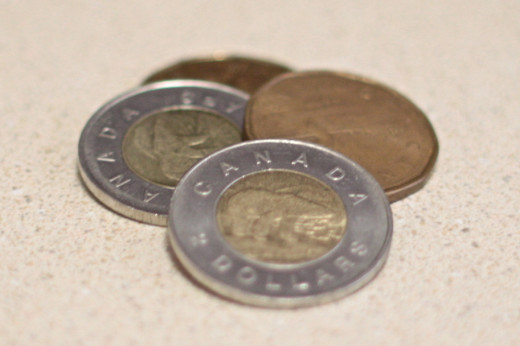
**Aside: some people will object to me at this point, and I agree that of course, some people have more choices than others, whether due to socio-economic boundaries or geographic location. Of course I would never presume to suggest that those truly struggling to keep a roof over their heads or food in their children’s bellies reassess their priorities to include ethical consuming. Yet I do believe that many in our North American culture perceive themselves to be struggling more than they are – there is a true need to have a roof over your head; there is not a need to have satellite tv service or a specific brand of sneakers. This is where it is important for each of us to realize which freedoms and choices we actually have, as opposed to the ones we feel we have.
But Ethical Consuming is So Overwhelming…
A common obstacle that may arise when considering ethical consumption is an overwhelming sense of futility because there are too many problems with our current system of consumerism to believe that one’s actions are really going to make a difference. It’s common to struggle with choosing somewhere to begin. Once you’ve committed to shaping your purchasing behaviour with principles and values rather than just your bank account, it may feel like if you care about something, you have to care about everything. Of course, if you’re trying to combat environmental destruction, uphold human rights, and prevent wars across the world over resources using only your debit card, you’re going to feel some detrimental effects. Feelings like depression, helplessness, and futility aren’t going to motivate you; they’re going to make you give up. Or make you go crazy. Or make you stick your head back in the sand because it’s “easier.”
Of course, yes, it would seem ideal to live in a world where all employees were treated with dignity and paid fairly, where we only used as many resources as we could be certain would replenish themselves in our lifetime, if we knew that the origins of every ingredient in the products we buy wouldn’t cause detrimental health effects down the road. Yet this isn’t likely ever to happen. As I said, this system evolved long before you or I ever got here, so we can’t take it on singlehandedly. So what’s the alternative to beating your head against a wall, or feeling like even though you did what you could, you still didn’t do enough?
Choose ONE THING.
We’re not going to get that world that I described above, at least not anytime soon. But what about another world? What about a world where each person does something, and no one just sticks their head in the sand and pretends the problem of wasteful consumption doesn’t involve them? This is what I advocate: everyone choosing their own “thing,” their own principle that guides them in their purchasing power beyond the computer-like calculation of “best deal.” It doesn’t matter to me what someone else’s thing is, just as long as they have one – one principle that they truly believe will benefit the world, that they allow to determine their purchasing behaviour. The best part is, there are a plethora of things you can choose.
Your thing might be sweatshop-free goods, recycled materials, independent businesses, organic products, all-natural cosmetics, minimal packaging, excellent employment standards, or products made-in-_____________ (insert your home country here). The list could go on and on, but the point is that each of us can have a different thing, and we can all respect each other’s commitments.

For example, one of my good friends doesn’t buy anything made in China. Ever. Do I follow the same rule? No. For me personally, excluding one country doesn’t resonate, because I would just start to think about the other countries with similar manufacturing practices to China and would need to lengthen the list. But do I see what she’s getting at? Yes. Does this action mean that she likely avoids buying some things she doesn’t need because she’s more carefully considering each purchase? Quite possibly. Does her choice come up in conversation and might it make someone else consider more carefully the origins of what they buy? Absolutely. At the end of the day, she’s done her research, she has her reasons, and I respect and admire that she allows something more than a “sale” sticker or her own impulses to determine her buying actions.
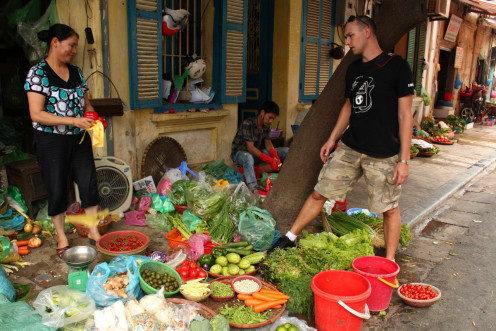
Another friend of mine is all about buying organic and local. She’s a dietician, so she’s also very knowledgeable about other food-related health concerns that may cause confusion for many of us regular consumers. Do I buy local as a rule? No. Sometimes? Yes. Have discussions with her influenced me to do that? You bet. That’s the other great thing about everyone picking something – we can encourage each other to make better choices, too.
But I Don’t Know What to Pick…
If you’re not sure what to start with, I can suggest starting with an “at least” rule for yourself. When I decided I wanted to change my consuming habits, I was definitely overwhelmed by where to start. I was also overwhelmed by the fact that I would think about all issues at once, and I can attest that it can be hard to find products that are made-in-Canada by a manufacturer with an excellent record as an employer, using resources that are extracted sustainably, while avoiding use of chemicals and other preservatives, that are then packaged in an eco-friendly way and sold in an independent business in my hometown. Whew!
For awhile, I tried to solve this dilemma – and my sanity! – by deciding that everything I bought had to have an ethical “at least” attached to it. So I could say “at least it doesn’t come with any unnecessary packaging,” or “at least it’s made with recycled materials,” or “at least it’s made in Canada,” or “at least I supported a local shop.” Sure, I still ended up buying some things that had unnecessary packaging, or were made from all new materials, or were made in a sweatshop, but at least I was choosing to give my money to companies and stores that were, like me, doing something to be ethical in a world of consumptive chaos, rather than doing nothing.
- How I Became a Secondhand Shopper...
For more on why seeking out others' discarded gems not only coincides with my principles but is also genuinely fun, see this hub!
Over time, this practice helped me to narrow down some criteria that have become natural for me when I need to buy, well, pretty much anything. Now, I try to buy nearly everything possible secondhand, I buy my body products at The Body Shop because of their focus on natural ingredients and no-animal-testing policies, and don’t consume any meat.
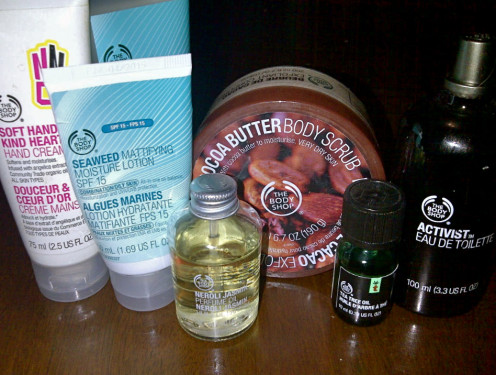
- How to Ease the Transition to Vegetarian Eating
If cutting out the consumption of meat is in line with your principles for ethical consuming, check out some tips for a smooth dietary switch here.
- The Best Eco-Friendly Yoga Mats - JadeYoga
Eco-friendly yoga mats that are attractive, comfortable, and long-lasting - with the added bonus of supporting admirable causes with every purchase!
If none of these criteria apply to a particular purchase, I try to find an “at least.” For example, when I needed a yoga mat, I did my research, and chose a product by JadeYoga that is “made sustainably in the U.S. in compliance with all U.S. environmental laws with natural rubber, tapped from rubber trees & contains no PVC or other synthetic rubber.” Not only did I get a mat that I love, and that is consistent with my personal principles of environmental consciousness, but I also feel content knowing that my money supported the growth of a company that I want to stay in business. For every mat purchased, JadeYoga plants a tree. They also operate a program called Jade 3R where they take back used mats to bring to those who might not be able to afford them, thereby decreasing the number of mats that end up in landfills – they even recycle the ones that can’t be reused as they are ! Check out their “causes” page, too; it’s full of projects the company supports that focus on linking yoga-ers with activism opportunities. Sure, a mat here might cost more than at a generic department store, but I’m not just buying a yoga mat – I’m voting with my purchasing power by sending my money to an organization that I know is using their money for what I believe to be good.
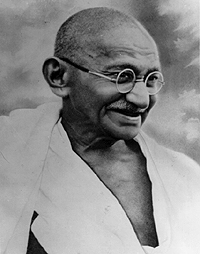
- The Harry Potter Alliance
If you're wondering about how J.K. Rowling has changed the world, check out the HP Alliance, a grassroots activism organization inspired by her books.
But One Person Can’t Change the World…
Sure, tell that to Ghandi, or Marie Curie, or Nelson Mandela, or Thomas Edison, or J.K. Rowling… okay, you get my point. I remember about five years ago, I was grocery shopping with a friend, and I wouldn’t let him get plastic bags at the checkout, insisting that he use some of my extra re-usable ones. “Whether or not you use them, they’re still being made,” he said. I told him that wasn’t the point, because if enough people didn’t take them, eventually they’d start making less, and then maybe someday they wouldn’t even make them at all. Not to say I told you so to that dear friend, but now only five years later, most stores charge a fee for those silly plastic bags, and the momentum to stop using them has only grown. Did I personally change the system? No. But did each person who thoughtfully chose to carry reusable bags, to carry groceries in their purse, backpack, or just in a pile in their arms contribute to a wider movement that resulted in fewer plastic bags being produced today? Absolutely !
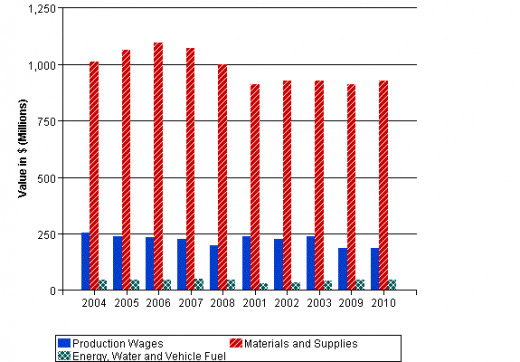
**Note: I know there is much debate over whether plastic bags actually cause less carbon footprint to produce over paper bags. However, the point I’m making is not about what type of bags to use, but about the impact of individual choices on society-wide consumerist practices.
I think what's happening with plastic bags is also possible with ethical consuming. Here’s what I think could happen if everyone chose ONE thing, even just ONE thing:
- More people would consciously consume products from companies they respect for their principles and business practices.
- After a time, profits would start to favour companies that consumers endorse for their practices, rather than the ones that simply have the lowest prices or the most saturating ad campaigns.
- As a byproduct of this change, more companies would start competing for business using principled behaviour, rather than merely ad campaigns and ‘deals,’ thereby increasing our options for ethical consumption.
- As more individuals feel the contentment of their ethical purchases, maybe one thing turns into two, into three, into four, as they realize it just feels good to purchase and consume things that you agree with on a moral level.
- Perhaps over time we would even change the focus of our consumerist culture for future generations, so that ethical consideration of products becomes as central to our purchasing behaviour as getting the most for our money.
Take Up the Call
It’s time to do more: it’s not enough anymore to pat ourselves on the back for recycling or turning off the lights when we’re not in the room, or even using reusable shopping bags at the grocery store. People my age have been hearing the tunes about turning off lights and conserving water when brushing your teeth since we were children – long enough that it should be second nature, and is no longer an accomplishment. When even the big grocery chains discourage you from taking plastic bags, not using them is no longer a statement a person makes about environmental conservation; it’s just following a trend – a positive trend, but a trend all the same. When every coffee shop in the area has recyclable takeaway cups, we can’t give ourselves gold stars for choosing that chain and thereby ‘recycling.’ It’s time to move on to the next big thing.
The good news is that each of us has the freedom to determine what the next big thing is for ourselves, based on our own principles and what we believe is good for the world. It’s time to use the power we have to make real, personal, principled choices, and allow those principles to override our blind participation in the consumption machine. Ethical consuming might mean inconveniences, or sacrificing some of the things we currently take for granted, but I truly believe it will help our global community, and I truly believe it brings greater contentment and peace of mind to the individual.
So Where to Go?
Below are some suggestions for places to look, but I’d love your ideas, too – fill up the comments below with places the HubPages community should check out, or just give a shout out to your “one thing!”
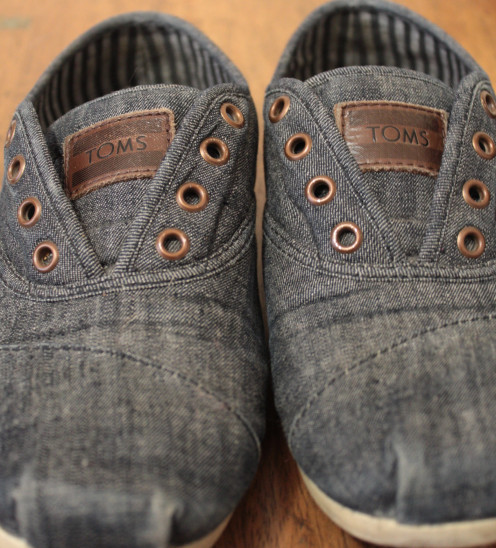
- TOMS
Want a company that gives back when you give to them? Try Toms shoes! For every pair you purchase, Toms will provide a pair of shoes for a child in need. Their program is wonderful - check it out.

- The Body Shop
Want a company that doesn’t test on animals? The Body Shop could be your go-to place – check out their values on their Campaigns page.
- Jerico
Want Clothing Made Right Here in Canada? Check out Jerico, a company that makes classic clothing using quality materials and then sells them at wholesale prices, so you don’t even have to pay more for a GOOD deal.
- Want to cut down your contribution to the use of new resources to manufacture goods? Try the hidden treasures in your local thrift shops or secondhand stores, and remember that this doesn’t have to mean dingy or sub-par – antique stores and vintage shops count here, too!
- Curiosities - London, Ontario
Who knows what you'll find in your local area?
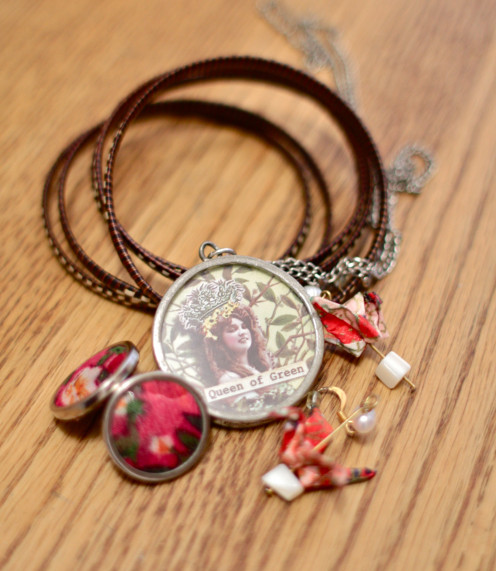
- Want to reduce the fuel used by transporting goods cross-country or across the globe? Seek out local artisans for specialty items in the shops of your own town when buying gifts for friends and family – it may well be that you can’t buy as much for people, but I think the principled thought a giver puts into a gift adds tenfold to the value of even the smallest item. It’s easy to locate such shops in your hometown, as I did by googling “local artisan shops, London, Ontario,” and came up with a bunch of options, including Curiosities, which sells delightful, local, handcrafted jewelry.
I wish you excitement, joy, and contentment as you seek out your thing.
Don't forget to leave a comment below - you can tell others what your "thing" already is, add some more suggestions for ethical producers we should all check out, or announce what your new thing will be!





